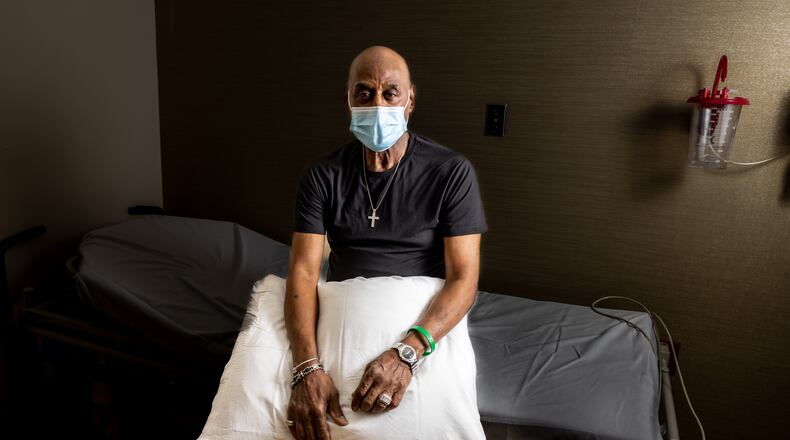“Not well at all” is how Cortner described his health. “Not much longer to live.”
But now the 71-year-old Dayton man exercises daily at a fitness club, rides his three-wheeler Harley-Davidson, takes ballroom dancing classes and has fallen in love again.
All because of a medical device the size of a dime that makes Cortner feel like a million bucks.
“I’m a healthier person,” he said during a telephone interview. “I feel more independent, more confident. I have a smile on my face and I thank the Lord for waking me up this morning.”
When Cortner was first seen two years by the Heart Failure Clinic at Miami Valley Hospital in Dayton, he had been hospitalized eight times during the previous 14 months. A palliative drip stabilized his heart failure. But he said the central line inserted into his chest was uncomfortable, embarrassing.
Mckenzie Mason, who coordinates Cortner’s care in her role as an advance practice nurse for the clinic, prescribed a higher dosage of water pills to reduce the excessive fluid on his lungs.
Then Mason suggested an innovative idea: an emerging technology, the CardioMEMS device, which is implanted into the pulmonary artery. It measures blood flow pressure, heart rate and lung pressure.
Cortner had the surgery on Jan. 29, 2021 at Miami Valley Hospital. Dr. Himad Khattak recently performed the same procedure, the first at Atrium Medical Center in Middletown.
Khattak said the home monitoring system contains a portable electronic unit and a special pillow with an antenna whose daily sensor readings determine elevated levels of pressure in a patient’s pulmonary artery.
If a patient’s pulmonary artery pressure is too high, Atrium’s heart failure team is electronically notified through a secure website and can intervene through medication adjustments and work with the patient on lifestyle changes before physical changes occur, according to Khattak.
He said the device can alert the medical staff two to three days before a possible heart incident.
Khattak said clinical studies have shown patients with CardioMEMS have fewer heart failure hospitalizations by up to 40% and lower mortality. He said providing this level of care can be “foundational for improving their quality of life.”
Cortner, a retired carpenter and GM employee, was asked to explain the CardioMEMS.
“All I know it works,” he said with a laugh.
He said he’s looking forward to marrying his fiancee, Diane Byrd, and spending more time with his five children, 11 grandchildren and eight great-grandchildren.
“I feel like a different man now,” he said. “There was the man before, and the man now.”
Then he addressed the Man Upstairs.
“God isn’t done with me yet,” he said.
About the Author


